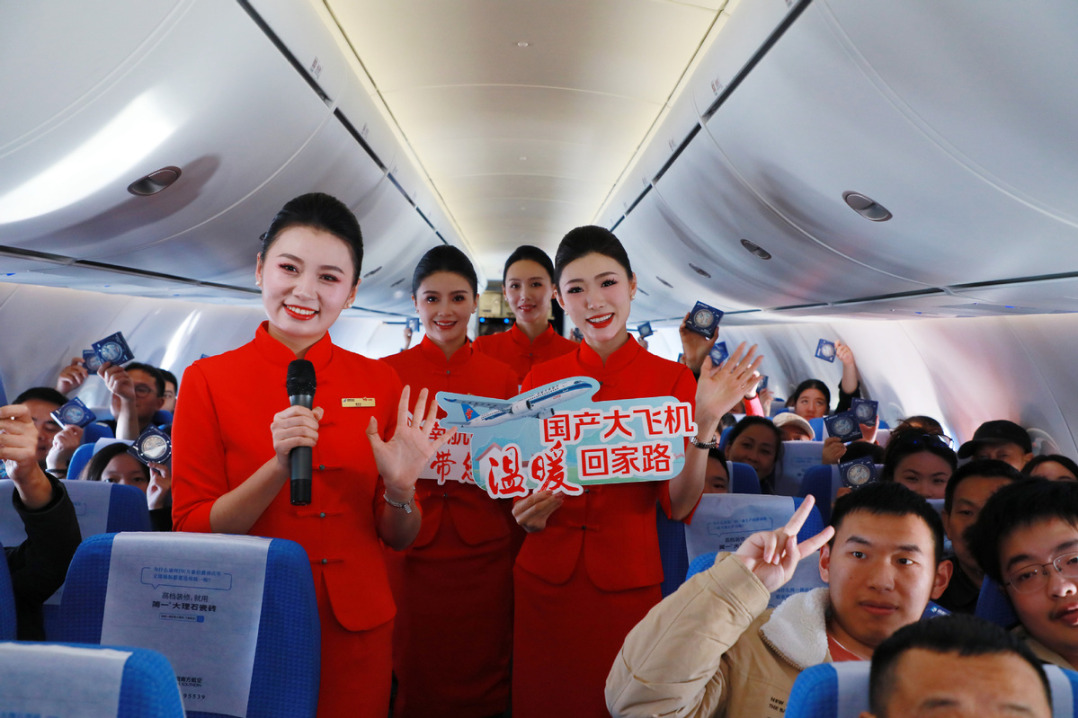Progress defines China's economic odyssey


As the People's Republic of China enjoys its 74th anniversary celebrations, it has pledged an unwavering commitment to ushering in a new era of economic openness. China's vision, which focuses on achieving high-quality, innovative, coordinated and environmentally conscious development, marks a pivotal milestone in its economic journey.
In the words of President Xi Jinping, this year symbolizes the unlocking of China's market for further modernization. This strategic endeavor seeks to align domestic and international imperatives while seamlessly integrating development with security considerations.
Over the past seven decades, especially during the more than four transformative decades of reform and opening-up under the leadership of the Communist Party of China, the nation has achieved remarkable social stability and economic growth. Indeed, China's economic transformation has been from a humble beginning to global leadership.
At the heart of this extraordinary progress is shrewd management of the intricate relationship between reform, development and stability. In 2022, China's investment in research and development rose a remarkable 10.1 percent from the previous year. Investment in high-tech industry, which surged 12.5 percent year-on-year in the first half of 2023, and the substantial increase in the added value of critical sectors such as aerospace, equipment and lithium batteries, which exceeded 20 percent year-on-year, vividly illustrate China's unwavering commitment to coordinated development.
The urbanization rate has risen from 53 percent in 2012 to 65 percent in 2022, significantly reducing the urban-rural ratio of disposable income per capita from 2.88-to-1 to 2.5-to-1.
Recent years have also witnessed China's intensified efforts to establish a unified national market, resulting in accelerated development in key regions such as the Beijing-Tianjin-Hebei region, the Yangtze River Delta and the Guangdong-Hong Kong-Macao Greater Bay Area, yielding substantial benefits.
Moreover, China's steadfast dedication to green development resonates with global concerns. In addressing humanity's shared challenges, the nation has witnessed significant growth in new energy vehicles, charging stations and wind power capacity. Additionally, China's installed renewable energy capacity has surpassed that of coal.
Foreign investment in China continues to surge, with 24,000 new foreign-invested companies established in the first half of this year, reflecting a 35.7 percent year-on-year increase. Notably, Tesla's Shanghai Gigafactory has played a pivotal role in the company's global deliveries, producing an electric car every 40 seconds.
Also worth noting is China's commitment to BRICS cooperation. The nation has emphasized its readiness to collaborate with its fellow BRICS partners — Brazil, Russia, India and South Africa — in line with the principles of openness, inclusiveness and win-win cooperation. This new phase of China's economic journey signifies a pivotal moment, not just for the nation but for the global economic landscape.
Reflecting on these 74 years, we witness China's evolution from the early days, when it grappled with severe economic backwardness and societal desolation, to the prosperity achieved after 44 years of reform and development. Progress has been profound in science, technology, economy, culture, social development, stability, national unity and border defense.
China has proposed monumental projects that aim to benefit the entire world, such as the Belt and Road Initiative, which includes the China-Pakistan Economic Corridor. The BRI connects Asia, Europe, Africa and Latin America through a vast network of roads and sea lanes and increasing people-to-people exchanges, representing a significant portion of the world's growth and population.
China's commitment to cooperation in the BRI includes policy alignment, infrastructure development and open trade, with extensive investment from public as well as private Chinese institutions. Despite opposition from some Western countries, China remains steadfast in its vision to unite the world through economic competition rather than conflict.
The China-Pakistan Economic Corridor, a cornerstone of the BRI, spans 2,400 kilometers from the bustling Gwadar Port on the coast of Pakistan to China's resource-rich Xinjiang Uygur autonomous region. This ambitious corridor is a testament to China's unwavering commitment to modern development and global economic integration.
Unlike traditional major powers that have relied on military might to assert dominance, China is charting a different course — one characterized by economic prowess and cooperation. The completion of these grand projects signifies a major shift in the global power landscape, with China poised to lead not through force but through its ability to foster economic growth, innovation and connectivity.
Crucially, China's journey toward this future is not a solitary one. It is marked by partnerships with nations that share its vision for inclusive development. Pakistan stands as one of the most significant allies in this endeavor. The collaborative spirit between Beijing and Islamabad has been instrumental in overcoming challenges and advancing these transformative projects.
Amid opposition from certain quarters, often driven by competing interests and outdated paradigms, China remains steadfast in its pursuit of humanitarian goals.
The world is witnessing a paradigm shift in global affairs, as China takes bold strides toward a brighter future for all nations involved in the BRI and beyond. The emphasis on economic cooperation and development resonates as a beacon of hope in an increasingly interconnected and interdependent world.
The author is secretary-general of the Pakistan-China Friendship Association Khyber Pakhtunkhwa Chapter. The views do not necessarily reflect those of China Daily.
- Beijing holds vibrant New Year celebrations at Shougang Park
- Trade between Chinese mainland, Taiwan records year-on-year increase of 9.4%
- Taiwan residents make over 4m trips to mainland in 2024, up 54.3%
- Xi Jinping's cultural footprints in 2024
- Southeast Asian mayors experience Chinese New Year traditions in Nanning
- 90 years on, Long March's legacy inspires China's progress in the new era





































